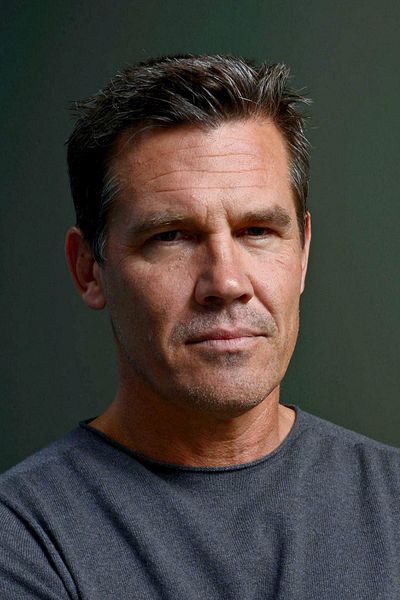When you look back on 2013, what movie is going to stand out? Depending on where you are - since us over here and those in America get different movies on different dates - the answers will probably vary. Gravity. Blue Is The Warmest Colour. 12 Years A Slave. The Act Of Killing. Her. Django Unchained. Blackfish. Frozen (seriously, it's surprisingly forward-thinking). All fine answers, and (mostly) all original material. In a year when sequels, reboots and adaptations where king, originality was rare (only two of 2013's top ten biggest box office hits were original movies; Gravity and The Croods) or it was often greeted with trepidation (big budget original properties such as Pacific Rim, Elysium and Oblivion didn’t make a fraction of the likes of Fast & Furious 6 or Iron Man 3).
But in the face of all of this, one movie that does stand out as potentially helping cinema and filmmakers embark on a new direction, with an emphasis on the word "new", is Oldboy. It wasn't overtly detested by critics - 44% on Rotten Tomatoes, 49 on Metacritic - but it was wholly ignored by cinemagoers. On a production budget of $30 million (which doesn't include whatever the movie-makers spent on promotional material such as trailers, posters, etc), Oldboy went on to make little more than $4 million... worldwide. Despite featuring a talented, mostly well-known cast and a capable, vaguely well-known director, the remake of Oldboy went on to become one of the biggest flops of 2013. But why is that important?
Let's go back a little bit. The original Korean version of Oldboy was released in 2003, and is one of those foreign-language movies that seems to have been seen by more people than most. Perhaps it was due to its "Did you see THAT bit?" violence, or its "I did NOT see that coming!" twisty plot line, or maybe just because it was a great movie, but Oldboy was a major cult-hit. It was loosely based on a Manga comic, and it was this comic book that the American remakers were looking to focus more on, rather than a direct remake of the Korean movie. And who were these remakers? Well, as rumour has it, originally it was set to be Stephen Spielberg directing Will Smith in the lead role. But after a few rounds of cast and crew musical chairs, we ended up with the not-to-be-sniffed-at Spike Lee directing Josh Brolin in the lead, with support from up-and-coming talents Elizabeth Olsen and Sharlto Copley, as well as Samuel L Jackson in a peroxide mini faux-hawk.
So with a capable person behind the camera, and a solid cast in front of it, a fairly low (by Hollywood standards) budget, and the possibility to update the Korean story and transplant it into America, turning it into a whole new beast, odds where on that this could end pretty well. But as we all know, it didn't. It bellyflopped out of cinemas faster than The Harry Hill Movie. And the reason for that is because they had wholly failed to do anything new, original or interesting with the story. There was a fantastic opportunity to hold up the same twisted mirror used in the original, but to the USA, and go to town on a nation's subconscious. Instead they just copy-and-pasted the plot and characters from a movie that was barely a decade old, and failed to do it as well as they did first time round. It was nothing more than a faded facsimile.
Hollywood loves to return to previously tapped wells, drop a few sticks of dynamite and regurgitate whatever they find, but the ratio of remakes that are good to remakes that are bad is pretty staggering. Horror is the unholiest of holes to find the worst remade dreck, with barely enough examples of good ones to fit on one hand (we can think of The Fly, Dawn Of The Dead and The Thing, and then start to struggle), compared to bad (Halloween, The Amityville Horror, Nightmare On Elm Street, Texas Chainsaw Massacre, The Omen, Psycho, The Wicker Man, House On Haunted Hill, The Haunting, Black Christmas, The Hitcher, Prom Night, The Fog, the other more recent The Thing, the list goes on and on and on).
In a perfect world, original movies would be king, and remakes would be considered something closer to a last resort. In this same perfect world, remakes would only be considered if (1) enough time had passed from the original that it was deemed worthy, so anything 25 years or older would be good to go, and/or (2) it was different enough from the original to warrant the story being retold. Now, we're not ignorant to the fact that movie-makers want to make money as well as movies, and making something that already has a built-in fanbase is giving yourself a massive headstart.
But hopefully the epic failure of the remake of Oldboy will alert Hollywood not to be so blasé about what they're remaking. Not enough time had passed, not enough about the film had changed, it wasn't an improvement on the original, and cinema-goers reacted by going to see something else instead.
Looking forward, 2014 is going to be just as remake heavy as last year, with the likes of Godzilla, Robocop, Cinderella, Annie and more on the horizon. Here's hoping that those movie's makers have tried to be as original as possible with their remakes, because otherwise this is what will become of the moviegoers…



















































































